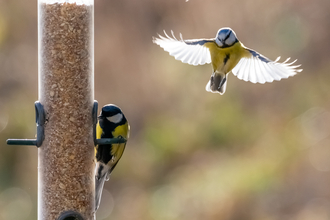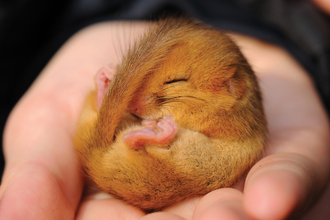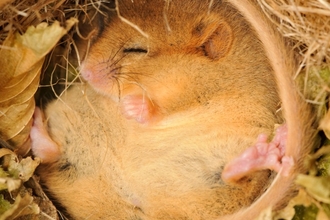Do you want to encourage more birds into your outdoor space but don’t know where to start? Keep reading and learn how to turn your garden, yard, window box, community garden or any outdoor space in to a wildlife café by catering for Yorkshire’s most common garden birds.
Caring for garden wildlife this winter
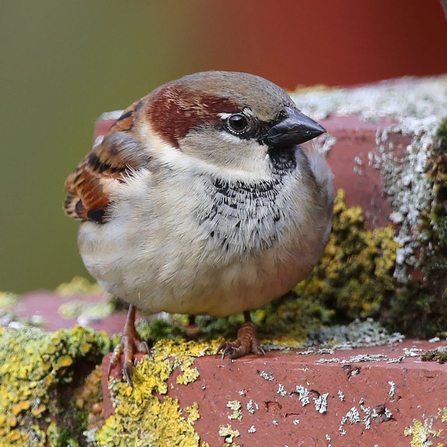
House sparrows
House sparrows aren't fussy, and will happily eat from ground feeding trays or hanging feeders!
Outside of breeding season sparrows will feast on any type of bird food, so try putting out mixed bird seed and see if you can attract even more guests to your bird food buffet.
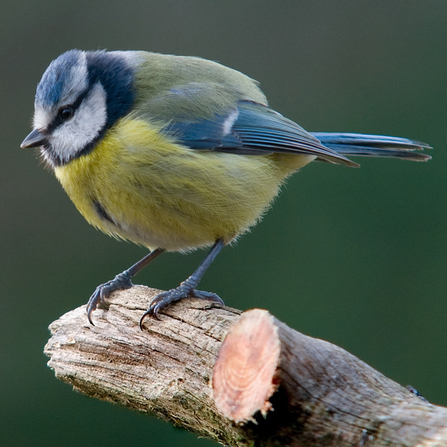
Blue tits
Blue tits are familiar garden birds that like to eat from hanging feeders, where they’re safe from predators.
You can cater for these colourful critters in winter months by putting out peanuts, suet balls or black sunflower seeds.
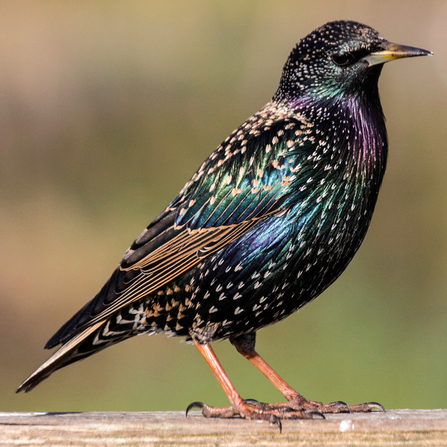
Starlings
Like house sparrows, starlings are happy to eat at ground level or from hanging feeders.
These shiny songbirds move in large flocks and will gladly gobble up suet products, peanuts and sunflower hearts.
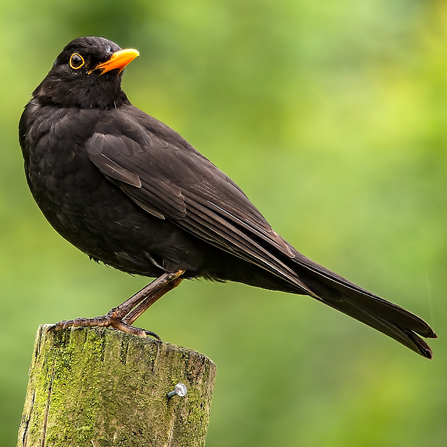
Blackbirds
Blackbirds are much loved garden birds that will fill your outdoor space with melodious song. Tempt these handsome songsmiths by offering them sunflower hearts, chopped peanuts, oats, live mealworms or even sultanas soaked in water.
Most importantly, blackbirds are ground feeders, and will rarely eat from hanging feeders, so place their food on the ground or in a feeding tray.
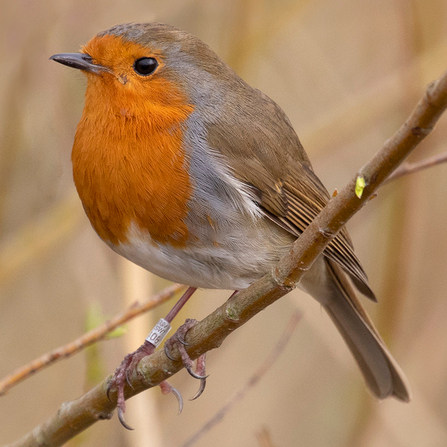
Robins
With their iconic bright red bib, robin’s are one of the UK’s most unmistakable birds!
They prefer to feed at ground level and will happily dine on a banquet of sunflower heart chips, chopped peanuts or live mealworms.
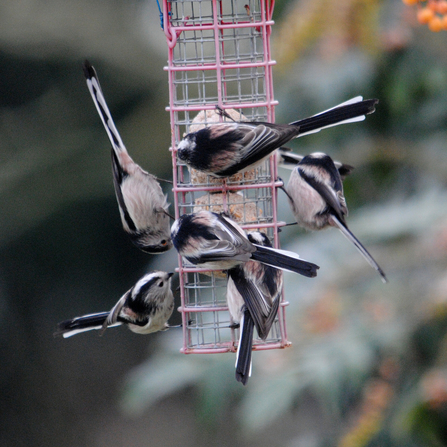
Vine House Farm
Vine House Farm give us £10 for every new customer from Yorkshire and 4% of all ongoing sales when you mention the Wildlife Trusts.
By buying their bird food you’re caring for birds in your garden, as well as the wildlife and wild places across Yorkshire.
Keeping feeders clean
As well as feeding your garden wildlife, it’s also important to keep bird feeders and bird baths clean and sterilised to stop the spread of diseases and parasites.
Clean feeders and feeding sites regularly using warm soapy water or 5% disinfectant, especially in the months between January and May. Make sure to rinse any disinfectant off thoroughly and always allow feeders to air-dry completely before adding food.
Brushes and equipment used to clean feeders, tables and baths shouldn’t be used for other purposes. Rubber gloves should be worn and hands washed afterwards

